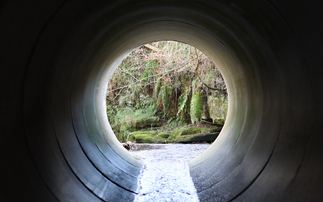PwC's Dr Celine Herweijer argues that no matter what the deal in Paris, the most critical conversations will follow in 2016
Whatever deal is done in Paris, it has as its foundation stones, the pledges (in the form of Intended Internationally Determined Contributions or INDCs) made by over 180 individual countries ranging from Saudi Arabia, to the US, to China, to tackle carbon emissions. The good news is the Paris pledges require a doubling of the current (since 2000) rate of decarbonisation as our own analysis underlined. The bad news is that we need a further doubling of the rate of decarbonisation that Paris will hope to deliver to meet the 2C goal that scientists and governments agreed in Copenhagen.
What this means is that all eyes will be on how countries act on their pledges after Paris.
Despite the bold statements made by heads of state at the COP yesterday, the actual negotiations of the text are proceeding at a glacial pace, with gradual editing of the 54 page long draft agreement. A critical and contentious area of the deal is reporting and accountability, known as transparency. The draft Agreement going into Paris references the creation of a "transparency framework" to promote measurement, reporting and verification.
This mechanism may end up as the legally binding aspect of what the Paris deal actually delivers rather than the pledges themselves (which are not likely to be legally binding). But it will almost certainly be loose, with terms like a "Global Stocktake" [of performance on pledges including emissions reductions] under discussion as opposed to reviews of national progress.
Businesses operating across borders under a patchwork of national policy and regulatory approaches to cutting carbon emissions, including the 62 carbon pricing schemes live or almost live, will need common carbon accounting and reporting standards to operate effectively.
With regard to ramping up ambition in emissions reductions and finance, a five year review cycle has been mooted. On our analysis, at the current rate of decarbonisation the global carbon budget for this century runs out in 20 years. Acting later could likely cost more, limit options available, or simply may be too slow. A faster acceleration in action is required to limit warming to under 2C, and to reduce the environmental, social and economic impacts.
A five year review cycle may be pragmatic logistically, but questions will be raised as to whether it's the right cycle scientifically and economically.
Either way, a critical conversation needs to happen after Paris to understand the shortfalls of the Agreement related to cutting carbon and driving accountability. How non-performance will be addressed and enforcement managed, nationally and/or internationally, as part of this is perhaps the most contentious part.
Developing the institutional arrangements and ownership for accountability and compliance will not be easy - if the pace and progress of the negotiations themselves are anything to go by. If this does not happen through the UN process, it is only a matter of time before attempts at enforcement through judicial systems could be seen. This year's ruling in the Netherlands ordering the government to take action on cutting greenhouse gases is already setting a precedent for such action.
There is a lot of work to do after Paris to create an international architecture that businesses and people will trust and believe in. One that has longevity and impact, and will deliver the scale of the low carbon transition required to guard against risks identified within the IPCC's analysis. On the bright side we can look to the UN Montreal Protocol process for an example of how a treaty can be agreed, and ambition in national pledges ramped up rapidly over a matter of years post agreement. Climate change has always been more politically complex, but the framework for similar acceleration in ambition post Paris will ensure its real lasting legacy.
Follow updates from Dr Celine Hewerijer, partner PwC, and World Economic Forum Young Global Leader @cherweijer or @pwcclimateready.
This article is part of BusinessGreen's Road to Paris hub, hosted in association with PwC.








